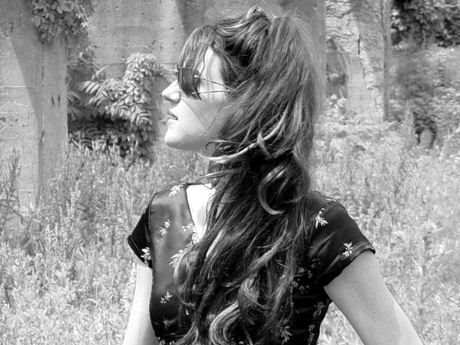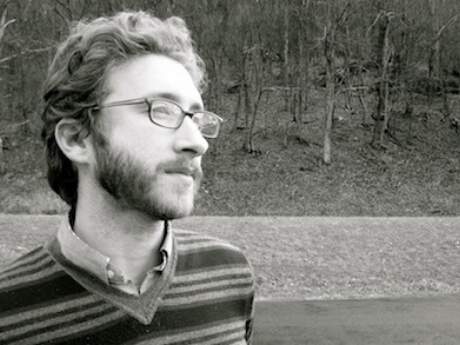New American Poets
New American Poets: Christine Hume

Various Readings of an Illegible Postcard
Horny or Harm seems an ordinary home.
Or Having seen the orchard and hives,
I'm satisfied I've picked the dark pocket
pink or satisfied, pickled larks protect the jinx.
You know I'm trouble with Dixie cups, croquet
and wicker or humble with desire for (cough)
the wicked. Ago? A queer little dog grazing
or gazing lives in my room or ivys my nous.
They have a saying here about your duct-taped boots
or They keep savvy bees in case the butcher balks
which is not cool is nautical is nonsensical.
Attention trick eye! A tension trickles
or After swimming we found the housekeeper dead.
I sing or swing, Let's keep her dear!
All day an unmade bed. One day I'll be young or
going as he who homesteads in foreign castles
deserves or whose domain feigns, casts designs
say, like shadows on the outhouse door or
the outskirts humoring me or out-skirting rumors
last as long as keeping honey
or homey or phone me, money?—Yours
"Various Readings of an Illegible Postcard" by Christine Hume from Musca Domestica (Beacon Press, 2002). All Rights Reserved. Reprinted with the permission of the author.
"Do you think that poetry can have an effect on everyday speech? How?"
Houseflies have not been domesticated by humans; rather, they have domesticated themselves in order to live with us. Their devotion is evolutionary—flies are hard-wired to sound like company. And anyone who's ever been trapped in a room with a fly knows: it both always and never seems to be flying toward you; that simultaneous direction and indirection is a poetic triumph. Montaigne complains that the fly's hissing is enough to murder his mind. A fly knows how to throw sounds around the room, addressing us restlessly, intrepidly, as it swerves and transforms its flightline. The fly catches in our bonnets, ruffling the surface of meaning. It whispers harebrained a-has!, naked nonsequiturs, paralogical postula—showing us a way out of our habitual givens of sound and sense. The fly lures us into an echo chamber of a world outside, becoming the ghost of language's agitations, an audible ghost clanking about in the attic. The sure, insistent rhythm and buzz that often kicks a poem into being, also helps it build its own order, its "metermaking argument." Poetry shows us how to keep the sound going, to see how many sounds can open up possibilities beyond first impulses and snap certainties. The accrual of design (sonic, imagistic, rhetorical) also allows for electrified mistakes that shake down our dictions, make us dangerous to the predictable. The poem's sensual speculations excite new knowledges, multiple landings: "And hit a World, at every plunge / and Finished knowing—then—" (Dickinson).


